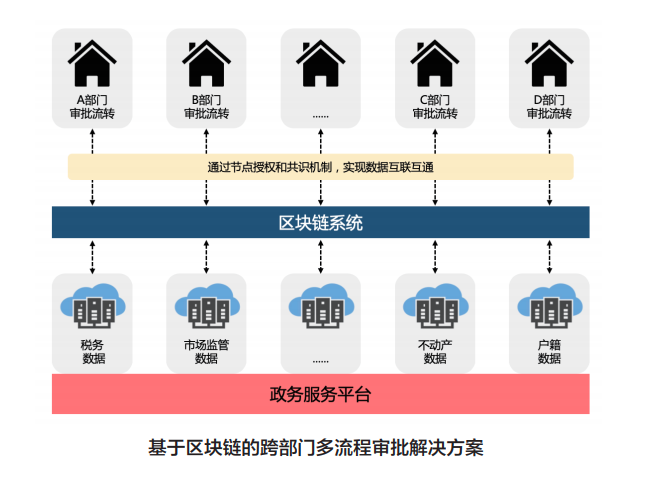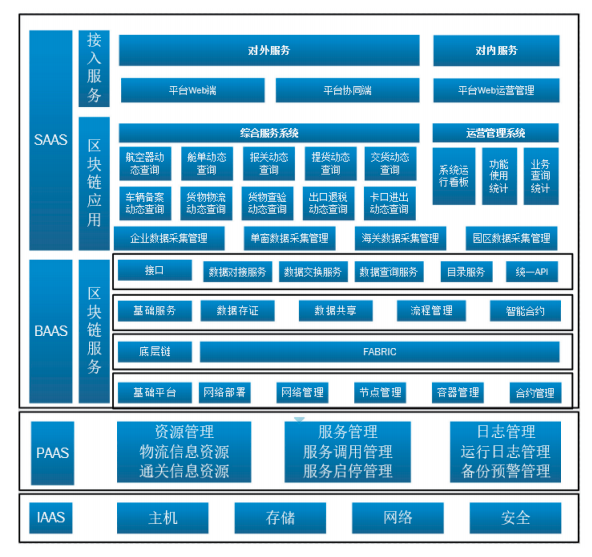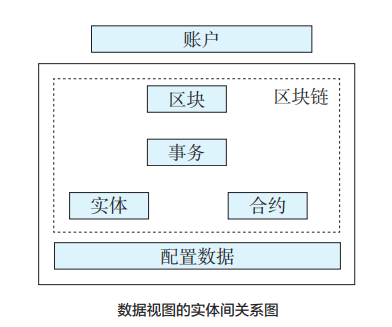Thread: Chinese government blockchain blue paper
Literally what it says: what seems like a real attempt for the Chinese government to "blockchain" governance. This looks super fun and intriguing, so I& #39;m going to read it and make live comments / translations as I read.
1/ https://twitter.com/balajis/status/1283980403049590784">https://twitter.com/balajis/s...
Literally what it says: what seems like a real attempt for the Chinese government to "blockchain" governance. This looks super fun and intriguing, so I& #39;m going to read it and make live comments / translations as I read.
1/ https://twitter.com/balajis/status/1283980403049590784">https://twitter.com/balajis/s...
(h/t to @QiaochuYuan)
p1: wow. "Blockchain, due to its system of trust, is going to be the foundation of digital finance and society.. and become key in new integrated information technology... accelerating "programmable society." So... futuristic!
2/
p1: wow. "Blockchain, due to its system of trust, is going to be the foundation of digital finance and society.. and become key in new integrated information technology... accelerating "programmable society." So... futuristic!
2/
p2: apparently, since 2019 Beijing has done a coordinated effort of using blockchain in 140 locations, with successes in "sharing data, business agreements, pandemic protection, returning to work (from COVID19)."
I honestly don& #39;t see the COVID use case... someone teach me!
3/
I honestly don& #39;t see the COVID use case... someone teach me!
3/
p4: second Xi Jinping quote, "Using big data, cloud computing, blockchain, AI... let cities become smarter and wiser, is a necessary path to modern city organizational systems."
Silicon Valley VCs have all their pleasure centers hit in the first sentence. True 5d chess
4/
Silicon Valley VCs have all their pleasure centers hit in the first sentence. True 5d chess
4/
p5: I have red flags due to the "on time" part of "we need real-time data that& #39;s correct, so blockchain tech allows the relevant parties to get information on time and check their correctness, improving political service."
Focus otherwise on "trust" and "data integrity"
5/
Focus otherwise on "trust" and "data integrity"
5/
p6: more Xi pandering (reminiscent of Mao pandering lol), but this time on "最多跑一次” ("one trip, one paper" is how I& #39;ve seen it translated elsewhere) to improve the user interface of the government.
I& #39;m *still* a bit confused on value prop, but hey that was already true
6/
I& #39;m *still* a bit confused on value prop, but hey that was already true
6/
X = "important person at meeting X wanted Y, we do that."
Bureaucrats working at public institutions (US or elsewhere) or people who write academic grants know what I mean.
A whole page of X later, we get to what looks like meat on p8!
I& #39;m salivating
7/
Bureaucrats working at public institutions (US or elsewhere) or people who write academic grants know what I mean.
A whole page of X later, we get to what looks like meat on p8!
I& #39;m salivating
7/
p8: 3 goals:
1) trusted system for digital government, avoiding "islands" of data
2) realizing sharing of traceable data
3) deepening collaboration between politics and industry
Hot take: don& #39;t get (3), (1) seems to be data organizational problem and orthogonal? (2) fine
8/
1) trusted system for digital government, avoiding "islands" of data
2) realizing sharing of traceable data
3) deepening collaboration between politics and industry
Hot take: don& #39;t get (3), (1) seems to be data organizational problem and orthogonal? (2) fine
8/
p14, after skipping more book reports
"Digital identity will become a fundamental unit. People/businesses will have records on-chain with unique identities.. which decreases the paperwork individuals need to supply for political tasks"
9/
"Digital identity will become a fundamental unit. People/businesses will have records on-chain with unique identities.. which decreases the paperwork individuals need to supply for political tasks"
9/
Hot take that I& #39;ll regret tomorrow:
This makes sense, though still need to build interface to not be glorified SSN. (we currently also have unique identities; the analogy here is showing you have private key to your given public key, which for the avg. person is waving..
10/
This makes sense, though still need to build interface to not be glorified SSN. (we currently also have unique identities; the analogy here is showing you have private key to your given public key, which for the avg. person is waving..
10/
.. your phone and digitally verifying it is you. There& #39;s still the workload of converting the real life check of "there& #39;s a form filled correctly" to a transaction on-chain, so you don& #39;t save the bureaucrat time there unless the form is encoded into some smart contract.
11/
11/
p14 still (my fav page so far!):
"using smart contract, we can give individuals and businesses a fair and objective credit score, incentivizing people and businesses to be responsible with their actions in society..." (*not* obviously talking about a social credit score)
12/
"using smart contract, we can give individuals and businesses a fair and objective credit score, incentivizing people and businesses to be responsible with their actions in society..." (*not* obviously talking about a social credit score)
12/
The last sentence of the paragraph: "in the application layer, blockchain technology will efficiently decrease the cost of government transparency of data."
I don& #39;t get this at all, since it& #39;s... blockchain, but I& #39;ll let it slide for now, since they& #39;re about to explain
13/
I don& #39;t get this at all, since it& #39;s... blockchain, but I& #39;ll let it slide for now, since they& #39;re about to explain
13/
"blockchain can protect sensitive data and privacy, which means more data can be shared horizontally, more govt. affairs information can be shared, without fear of edits. It also allows more reference data for governance, society building, and surveilance."
14/
14/
Okay so the steelman is "if we didn& #39;t have guaranteed privacy and crypto, it would have been hard for different departments to share sensitive data w/ each other without fear of data edits or leaking privacy, so we can gain efficiency here." Something like this makes sense.
15/
15/
p17: First picture! The idea here is to have the blockchain be a "backbone" that then talks to the many departments and other databases for reference.
Still something a central server can run. What& #39;s the diff? The biggest I see is anti-"corruption": people editing data
16/
Still something a central server can run. What& #39;s the diff? The biggest I see is anti-"corruption": people editing data
16/
p23: the most interesting thing after my dear p14 is "recruit talent urgently needed for blockchain core technology, local or abroad, scientific leaders, and innovators." All you people who want post COVID jobs, you know who& #39;s hiring!
17/
17/
p28: finally some structure! took 28 pages jesus
4 layers: SAAS, BAAS, PAAS, IAAS. First look is most of the interesting stuff are at the "applied blockchain" bottom of the SAAS layer, which allows queries of planes, shipping, cargo checks, importing, exporting, etc.
18/
4 layers: SAAS, BAAS, PAAS, IAAS. First look is most of the interesting stuff are at the "applied blockchain" bottom of the SAAS layer, which allows queries of planes, shipping, cargo checks, importing, exporting, etc.
18/
p30: they talk about the bottlenecks as "data gathering channels not fixed, gathering methods are blocked, data analysis is incomplete." My confusion is how blockchain solves this problem, since if you have bad data gathering you *still* have bad data gathering.
19/
19/
I think one thing this *can* solve is something like if a frequent source of blockage is it takes forever for the dude with the data at Tianjin to send the data over to Beijing for bureaucratic reasons or require data translation. Blockchain *does* solve this, but only
20/
20/
.. because it is a uniform data format over a wide network.
Uniformized data structure can lead to a non-blockchain solution as well. Have everyone use the same software with the same central server (that regularly makes replicas for wider data availability).
21/
Uniformized data structure can lead to a non-blockchain solution as well. Have everyone use the same software with the same central server (that regularly makes replicas for wider data availability).
21/
p34: "[in banks], client mistakes, losing ids, etc. causes many trips to the banks and many wasted hours. Also, banks& #39; due process is inefficient because of different data channels, incomplete data, etc."
Again a data organization problem. They want centralization =)
22/
Again a data organization problem. They want centralization =)
22/
p40: "desired application: after a citizen pays on a kiosk, they can use their Weibo program to find their assigned [medical] ticket, saving time spent in lines, losing tickets, faulty tickets, etc." Again something that can be locally automated, but using blockchain gives:
23/
23/
1) uniformization: I think (they don& #39;t say this) you can now more easily make multipurpose kiosks if they access the same blockchain data source
2) surveillance: everything is on-chain! If each hospital had their own data it would have been harder to merge them ;D
24/
2) surveillance: everything is on-chain! If each hospital had their own data it would have been harder to merge them ;D
24/
(honestly though, from having failed a healthcare startup, I gotta say the idea of a shared healthcare data service across all providers with privacy backed by crypto is *amazing* and would save so much energy wasted on hospital bureaucracy. I think this is a solid idea.)
25/
25/
p42: DeFi!!
They diagnose the bottleneck as small-midsized companies struggling with institutional finance, and they want to save the important data for different contracts on-chain, as well as financing statuses (as aforementioned identity, institutions have IDs)
26/
They diagnose the bottleneck as small-midsized companies struggling with institutional finance, and they want to save the important data for different contracts on-chain, as well as financing statuses (as aforementioned identity, institutions have IDs)
26/
(just to be clear, this is Centralized finance =D)
They do correctly identify data confirmation as a bottleneck, so again, blockchain *is* a solution.
Although I have been slightly snarky, charitably none of this is "obviously wrong" so far to me besides my complaints.
27/
They do correctly identify data confirmation as a bottleneck, so again, blockchain *is* a solution.
Although I have been slightly snarky, charitably none of this is "obviously wrong" so far to me besides my complaints.
27/
Interlude:
Taking a step back, it& #39;s clear they want:
- a central data store
- people + orgs tied to IDs
- many depts access the data (so data should be replicated)
- data should be fraud-proofed
- cryptographic privacy
Does this warrant a blockchain?
28/
Taking a step back, it& #39;s clear they want:
- a central data store
- people + orgs tied to IDs
- many depts access the data (so data should be replicated)
- data should be fraud-proofed
- cryptographic privacy
Does this warrant a blockchain?
28/
Not a bad solution, honestly.
Problems (not counting moral) still on my mind:
- scaling (duh): you& #39;ll definitely need a ton of sharding or layer-2 solutions
- you are still going to have human errors (such as clerical), possibly more costly to fix
- need a *lot* of infra
29/
Problems (not counting moral) still on my mind:
- scaling (duh): you& #39;ll definitely need a ton of sharding or layer-2 solutions
- you are still going to have human errors (such as clerical), possibly more costly to fix
- need a *lot* of infra
29/
But things they *can* solve (again, most of this *can* be solved without blockchain, but still have to give credit to the package):
- fragmented data
- private/sensitive data transfer
- (some types of) adversarial protection
- identification syncing/merging
30/
- fragmented data
- private/sensitive data transfer
- (some types of) adversarial protection
- identification syncing/merging
30/
p49: I love this page. It has actual (and thus falsifiable) goals.
1) saving movement: using automation to create no-meeting transactions, goal is to save 1.2*10^6 visits/year to a land lease registration lobby. So far, 10^5 visits have been saved. (hopefully not by COVID)
31/
1) saving movement: using automation to create no-meeting transactions, goal is to save 1.2*10^6 visits/year to a land lease registration lobby. So far, 10^5 visits have been saved. (hopefully not by COVID)
31/
2) saving material: to simplify ID, marriage, divorce, etc. types of material, estimating saving 4*10^5 sheets of ID a year.
3) save time: predicting a save of 4.2*10^6 hours of vising time for people. They even mentioned saving the number of window booths in the office!
32/
3) save time: predicting a save of 4.2*10^6 hours of vising time for people. They even mentioned saving the number of window booths in the office!
32/
Amazing observation by me: combining (1) and (3) means each visit to the office "wastes" you a bit more than 3 hours. So I& #39;m guessing each visit is something like 4 hours.
Is this better than our DMVs? (honest Q)
33/
Is this better than our DMVs? (honest Q)
33/
Getting bored / sleepy / have meetings tomorrow, so jumping to specs on p124. May return later if I get interested.
Actual block: 3 types of data: task, low-level data (physical addresses, etc.) and smart contracts
Spec seems high level, not giving too much info.
34/
Actual block: 3 types of data: task, low-level data (physical addresses, etc.) and smart contracts
Spec seems high level, not giving too much info.
34/
p129: mostly generic (not so different from e.g. Ethereum) so far.
- timestamps start at 1970 (!) (retroactive dating?)
- the main thing new to me is 配置数据 "implementation data" (software / protocol versions ) suggesting the design has layers / chain interlacing in mind.
35/
- timestamps start at 1970 (!) (retroactive dating?)
- the main thing new to me is 配置数据 "implementation data" (software / protocol versions ) suggesting the design has layers / chain interlacing in mind.
35/
Interlude 2, before sleeping:
If we don& #39;t have / expect adversarial behavior, then there& #39;s no real need to have a blockchain. Just make a central data store spread out with replicas and use traditional distributed systems.
Need to think more re: if adversarial nodes apply
36/
If we don& #39;t have / expect adversarial behavior, then there& #39;s no real need to have a blockchain. Just make a central data store spread out with replicas and use traditional distributed systems.
Need to think more re: if adversarial nodes apply
36/
Another elephant in the room (or me just being dumb, very possible) is the mining setup/incentives. They don& #39;t seem to be mentioned anywhere. If missing, this is again glorified data store.
I guess it means govt-issued "miners" just get paid a salary and make blocks?
37/
I guess it means govt-issued "miners" just get paid a salary and make blocks?
37/

 Read on Twitter
Read on Twitter




